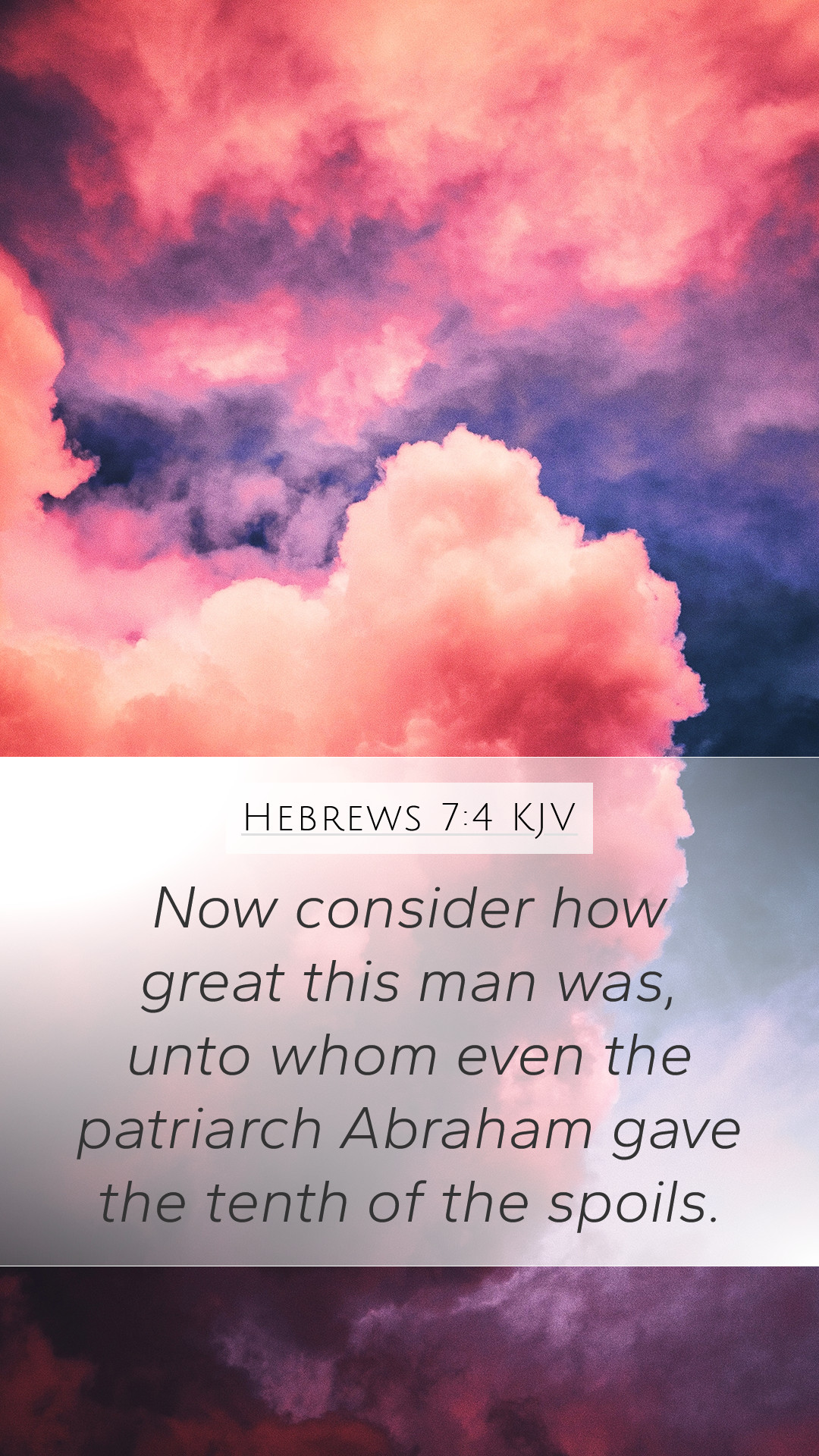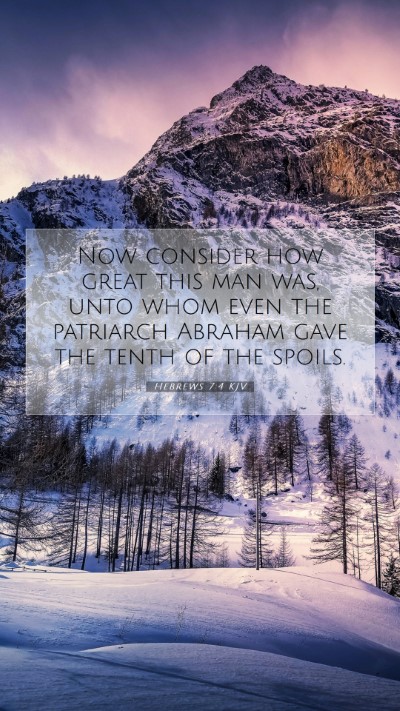Bible Verse Meaning and Commentary: Hebrews 7:4
Hebrews 7:4 states: "Now consider how great this man was, to whom even the patriarch Abraham gave a tenth of the spoils." This verse serves as a pivotal point in understanding the significance of Melchizedek as it pertains to Jesus Christ and the priesthood.
Understanding the Verse
This verse emphasizes the greatness of Melchizedek, highlighting the honor bestowed upon him even by Abraham, the patriarch of the Israelites. The act of Abraham giving a tithe to Melchizedek indicates respect and recognition of Melchizedek’s spiritual authority. The context of this verse draws upon the historical and theological nuances surrounding Melchizedek, presenting him as a type of Christ.
Insights from Public Domain Commentaries
Matthew Henry's Commentary
Matthew Henry notes that Melchizedek is presented as a type and a shadow of Christ, exemplifying the priesthood that transcends traditional Aaronic lineage. Abraham's tithe signifies a recognition of Melchizedek’s superiority as a priest of the Most High God. This act by Abraham serves to illustrate the divine order of priesthood that is established in Christ.
Albert Barnes' Notes
Albert Barnes elaborates on the significance of Melchizedek’s priesthood being superior to that of the Levitical order. By stating that Abraham paid a tithe to Melchizedek, it underscores that the lesser (Abraham) pays homage to the greater (Melchizedek). This is pivotal in understanding the argument the author of Hebrews is making regarding the new covenant's superiority over the old.
Adam Clarke's Commentary
Adam Clarke emphasizes Melchizedek's mysterious nature, suggesting that his priesthood is eternal and without predecessor or successor. Clarke draws attention to the fact that Melchizedek's encounter with Abraham sets a precedent for understanding the priesthood of Jesus Christ, which is not bound by the law but exists in the order of Melchizedek, thereby offering a deeper spiritual insight into the nature of Christ's priesthood.
Connecting Biblical Exegesis to Life
The verse not only serves to illustrate the historical significance of Melchizedek but also invites readers to contemplate their own relationship with God and the priesthood of Jesus Christ in daily life. Understanding this context enhances the appreciation of New Testament theology and Christ’s role as an eternal High Priest.
Bible Study Insights and Applications
- Historical Context: Recognize the significant historical aspect of the priesthood and how Melchizedek bridges Old and New Testament theology.
- Spiritual Reflection: Reflect on how acknowledging Christ's priesthood can influence your spiritual life and practices.
- Biblical Symbolism: Explore the symbolism of tithing as an act of worship and recognition of God’s sovereignty in our lives.
- Comparative Analysis: Engage in discussions around the differences between the Levitical priesthood and the priesthood of Jesus.
Bible Cross References
- Genesis 14:18-20 - The account of Melchizedek's meeting with Abraham.
- Psalms 110:4 - A prophetic reference to Jesus as a priest forever in the order of Melchizedek.
- Hebrews 5:6 - Acknowledgment of Christ's role as a priest in the Melchizedekian order.
Conclusion
Hebrews 7:4 is a profound verse that opens doors to deeper Bible verse meanings, Bible verse interpretations, and provides Bible study insights into the nature of Christ's eternal priesthood. It invites believers to explore their faith through the lens of historical context and spiritual truth, ultimately leading to an enriched understanding of Scripture.


